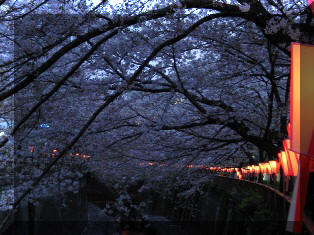

J-Pop Exchange Exclusive Interview with Kaori Kobayashi
Kaori Kobayashi
J-Pop Exchange Radio Show Exclusive Interview
Transcript
SeanBird (J-Pop Exchange): Hi Kaori, thank you for taking the time to speak with us, Did your interest in music begin in your childhood? How did you become interested in music?
Kaori Kobayashi: I
grew up with music, as my mother taught piano at home when I was a
child.
My mother told me that I used to play around on the piano ever since
I was a baby girl.
SeanBird: According to your website, you studied
under Bob Zangu. Please, tell us more about this experience.
Kaori Kobayashi: It was very fortunate for me to
have saxophone lessons with Bob Zangu, an American teacher in Japan.
Without him, my music would be different now. He certainly had a big
influence on me.
SeanBird: Interesting; please tell us more about
this.
Kaori Kobayashi: He hated the style of play that
seems to be masking something. From him I learned the essential
basics of the saxophone – that is, to play without lies or masking
something, and to make the sound of the saxophone pure.
SeanBird: Can you give us some insight into your
songwriting process?
Kaori Kobayashi: I try to compose music as if I
were making music for my favorite singer. If I compose with a strong
image of “music
just
for the saxophone”, it could become
simply
“instrumental
music”.
This is why I
sometimes find it dull when I play
this kind of music with
the saxophone.
SeanBird: Who are your musical influences?
Kaori Kobayashi: As for the saxophone, my
favorite musician is my teacher, Bob, Bob Zangu.
Although I have many other favorite musicians, I would say a
singer called “BASIA” had the biggest influence on me.
When I was at junior high school, my cousin introduced
BASIA’s music to me and soon I became a big fan of hers and listened
to her music over and over. I subsequently got into western music
when I went to high school.
SeanBird: What music do you like to listen to?
Kaori Kobayashi: Recently we formed a rock
band that consists of only Japanese female
musicians - so I listen to rock music a lot more nowadays.
SeanBird: Please tell us about your album
Precious and your latest album, how they came about, -- your
inspirations, and ideas behind the albums.
Kaori Kobayashi: To make the album Precious, I
asked Takayuki Murata, who is a bassist, to be the producer. This
album includes both music that I made with him and music chosen by
him from his point of view as a bassist.
My latest album is my 7thalbum, and that is also its
title, “Seventh.” And this
time I produced the album; it’s my first time as a producer.
So this album made it possible for me to describe the truth of what
I wanted to depict, and what I wanted to explore in music, 100%.
And through producing and being a producer, I learned a lot, both as
a saxophone player and as a producer.
The album “Seventh” contains 12 songs: 3 of them are cover songs and
the other 9 are original songs.
All the songs were arranged by me as well, so this album is a
particularly memorable album for me.
When it comes to the composing, as I said before, I concentrated on
composing songs that give the impression that they are not composed
by a saxophone player -- so they sound more interesting.
And I also collaborated with Tsugaru Samisen, with traditional
Japanese musical instruments.
The cover songs, “Europe,”[on the Seventh album] “Earth’s Cry,” and
“Heaven’s Smile” [on the album Precious] were with the girls rock
band called Blackberries, and I also covered classical musician
Chopin’s “Noctune” [on Seventh].
This album became very colorful and interesting; so please listen to
this album.
SeanBird: I notice that some of your fans wonder
about what specific kind of reed you use for your saxophone. Would
you mind talking about this?
Kaori Kobayashi: The reeds that I am using now are
V16 and Java 2half, but I am going to change to other reeds soon.
When you
choose such musical equipment,
you need to think if they are the right ones for you and also think
what type of music you want to deliver.
You should not choose them
because your favorite musician uses the same ones. It is important
to choose the
best
ones for yourself in order that you enjoy playing.
There may be reeds that are even more perfect for you!
SeanBird: Can you tell us something about how
you were affected by the Earthquake and Tsunami in Japan? How is
Japan recovery going?
Kaori Kobayashi:
On the day of the earthquake I was away from the affected area. I
did not actually experience the earthquake or the tsunami, but it
was a very painful disaster for me. I felt so much pain when I
watched the TV news. Many people were either killed by the tsunami
or lost their homes and now have to live away from their hometowns.
It made me think about the meaning of my saxophone music and of the
importance of music to me.
I realize that music cannot protect people from hunger or the
cold, but it can make people happy.
Both the music I play and the saxophone are originally from America,
whilst I am Japanese, having grown up in Japan. In a way, this means
that playing the saxophone represents collaboration between American
and Japanese cultural influences.
SeanBird: Yes, even in the most difficult times,
music can be a comfort. In conclusion, is there anything else
you’d like to mention that we haven’t discussed thus far?
Kaori Kobayashi:
Played by an American,
funky
saxophone music is indeed cool; however, a Japanese sound created by
a Japanese female is also something special. I hope that you will
come to listen to my music!